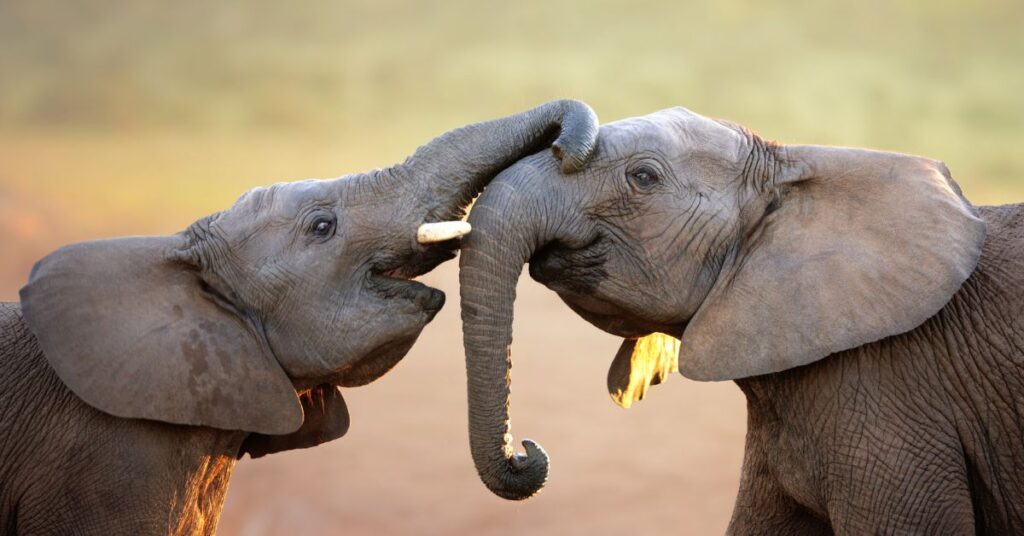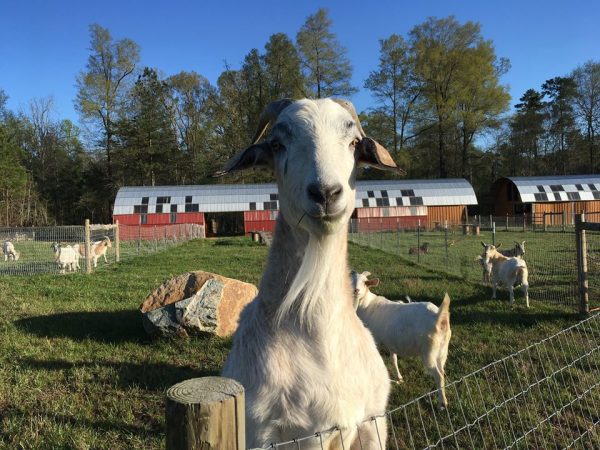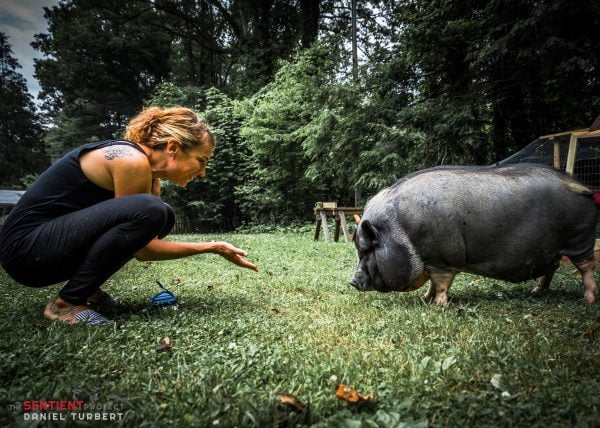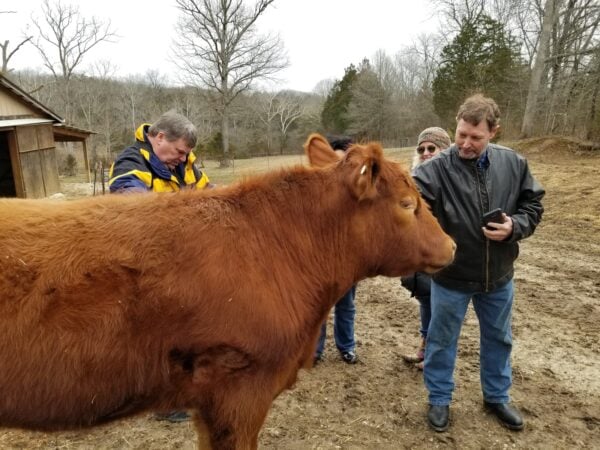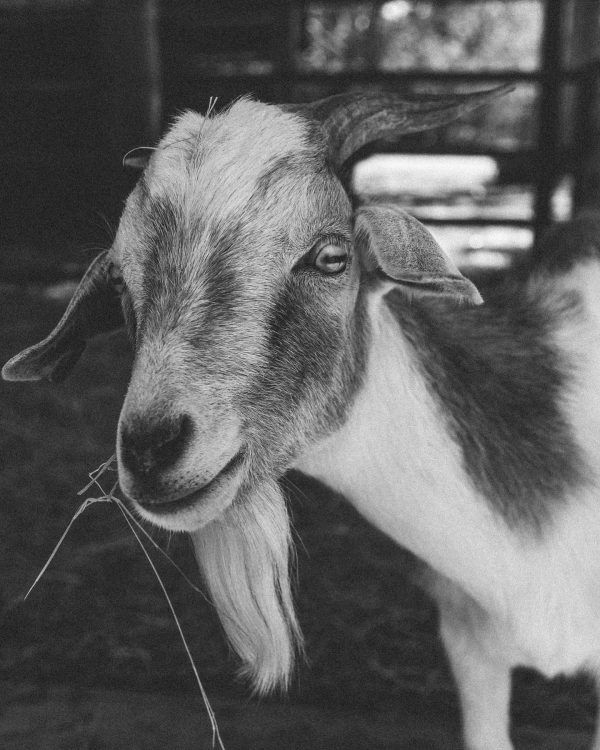On the 22nd of September, the world comes together to celebrate Elephant Appreciation Day, a day dedicated to honoring these majestic creatures and raising awareness about the challenges they face. While elephants are symbols of wisdom, strength, and grace, they are also tragically subjected to abuse and exploitation. This day serves as a reminder of the urgent need to protect and preserve these magnificent animals, allowing them to live in peace and harmony.
Author: Amanda Bautista Fernández
Elephants, these majestic creatures, hold secrets that leave us in awe. These animals exhibit strong family bonds, living in tight-knit matriarchal groups led by the oldest female. These matriarchal groups stand as pillars of support, guiding their kin through life’s journeys. Moreover, elephants are master communicators, using a mix of sounds, infrasound (sounds too low for us to hear), and body language. Their unique ways of expression are only beginning to be understood by us.
Imagine remembering routes, water sources, and even old friends after many years. Elephants do just that. Their exceptional memory is truly astonishing. Despite their imposing size, elephants are gentle giants at heart. They exhibit a remarkable sensitivity, showing empathy towards their companions and even mourning their loss. In addition, elephants are like nature’s architects. Their presence transforms landscapes, creating water holes and clearing paths. As “keystone species,” they play a vital role in the ecosystem, benefiting a myriad of plant and animal species. In a world filled with wonders, elephants stand as a testament to the beauty and complexity of nature. Their intricate family ties, extraordinary memory, and gentle demeanor remind us of the magnificence that exists beyond our everyday lives.
The Plight of Elephants
Elephants, both African and Asian, are highly intelligent and social animals that play a vital role in maintaining the ecosystems they inhabit. However, their populations have been steadily declining due to habitat loss, poaching for their ivory, and human-wildlife conflicts. Elephants are often exploited for entertainment purposes, such as circuses and tourist attractions, where they endure physical and psychological suffering.
The Exploitation and Tragedy in Africa
Africa, often referred to as the continent of wonders, is home to the awe-inspiring African elephants, the largest land animals on Earth. These majestic creatures, known for their intricate social structures, intelligence, and grace, have tragically become victims of one of the darkest chapters in human-wildlife relations: the ivory trade. For decades, the ivory trade has driven African elephants to the brink of extinction. The demand for ivory, particularly in Asian markets, has led to a ruthless wave of poaching, leaving countless elephants dead or orphaned. The ivory is carved into trinkets, jewelry, and artifacts, often symbolizing status or cultural significance. This demand, fueled by the illegal black market, has perpetuated a cycle of violence, corruption, and ecological disruption across Africa. The impact of this exploitation reverberates far beyond the immediate loss of individual elephants. Elephant families, known for their close-knit bonds and complex communication systems, are shattered as matriarchs and elders fall victim to poachers. The death of these wise leaders destabilizes entire herds, leading to disrupted migration patterns and a loss of ecological balance in their habitats.
Cruel Doma and Exploitation in Asia
In Asia, elephants hold deep-rooted cultural significance, intertwined with spirituality, heritage, and history. Throughout the centuries, elephants have been integral to various practices, including transportation, ceremonial events, and even warfare. However, the methods employed to train and control these magnificent animals often conceal a distressing truth of cruelty and abuse. Traditional practices like “phajaan,” also known as “crushing” or “breaking the spirit,” have been used to train young elephants for centuries. This method involves isolating young elephants from their mothers and subjecting them to a barrage of physical and psychological torment. The goal is to break their spirits, rendering them submissive and obedient to human commands. This process carried out using ropes, sticks, and other tools, inflicts both physical and emotional trauma on these sensitive creatures.
The tourism industry has further exploited Asian elephants for profit, often at the expense of their well-being. Many elephants are forced into unnatural and painful activities to entertain tourists, ranging from giving rides to performing tricks in circuses and street shows. These activities lead to long hours of confinement, exposure to harsh environments, and physical abuse. The use of chains, hooks, and other coercive tools is a distressing reality for many captive elephants, causing them immense suffering and psychological distress.
How to Help Protect Elephants: A Call to Action
In the face of the exploitation, abuse, and challenges that elephants in both Africa and Asia endure, we must take action to protect and preserve these magnificent creatures for future generations. Here are several ways in which you can contribute to the well-being of elephants:
- Support reputable sanctuaries and rescue centers: Consider donating to or volunteering at reputable elephant sanctuaries and rescue centers. Organizations like the Sheldrick Wildlife Trust in Africa and the Elephant Nature Park in Asia provide safe havens for rescued and rehabilitated elephants, offering them a chance to heal from past traumas and live in a more natural environment.
- Choose ethical tourism: When visiting areas where elephants are present, opt for ethical tourism activities. Avoid riding elephants, attending circuses, or engaging in performances that exploit these animals for entertainment. Instead, choose experiences that prioritize the well-being and natural behaviors of elephants.
- Educate and raise awareness: Use your voice and platforms to educate others about the challenges elephants face. Share information about the ivory trade, the consequences of unethical practices, and the importance of conservation. By raising awareness, you can inspire others to join the cause.
- Advocate for stronger laws: Support campaigns and organizations advocating for stronger laws against poaching, the ivory trade, and cruel practices. Write to your elected officials, sign petitions, and participate in campaigns that aim to protect elephants and their habitats.
- Contribute to conservation efforts: Many organizations work tirelessly to protect elephants’ habitats and advocate for their welfare. Consider making donations to reputable conservation organizations such as the World Wildlife Fund (WWF), International Elephant Foundation (IEF), and Elephant Crisis Fund.
- Choose sustainable products: Be mindful of the products you purchase. Avoid buying items made from ivory or other elephant-derived materials. Support eco-friendly and sustainable products that help reduce demand for such items.
- Engage in responsible wildlife viewing: If you have the opportunity to observe elephants in their natural habitats, do so responsibly. Follow guidelines for wildlife viewing, maintain a safe distance, and respect their space to minimize stress and disturbance.
- Promote conservation education: Encourage schools, communities, and organizations to include conservation education in their programs. Teaching people, especially the younger generation, about the importance of elephants and their role in ecosystems can foster a deeper sense of appreciation and empathy.
Elephant Appreciation Day serves as a poignant reminder of the importance of protecting these magnificent creatures from the various threats they face. Through awareness, education, and support for conservation efforts, we can work together to ensure a brighter future for elephants.
Elephant Appreciation Day is not only a celebration but a call to action. By actively participating in these efforts, you can make a meaningful impact on the lives of elephants. Every step taken towards supporting ethical treatment, advocating for stronger protections, and raising awareness contributes to a future where elephants can thrive in harmony with their habitats and communities. Let us unite in our commitment to ensuring that these gentle giants are cherished, respected, and safeguarded for generations to come. To learn more about animals and veganism, check out the Vkind app and Vkind.com!
SUBSCRIBE TO OUR NEWSLETTER
Vkind Vibes is our popular weekly newsletter where we share the latest news, tastiest recipes, and hottest trends impacting the VegEconomy. SUBSCRIBE NOW!
WANT MORE?
JOIN US AT VKX 2023! The Vkind Experience (VKX) is an immersive plant-based event celebrating travel, culture, and cuisine around the world as guests explore 11 experiential rooms while sampling an elevated fusion of world flavors.JOIN THE VKIND COMMUNITY Download the Vkind app on the App Store or Google Play to create your social profile and start sharing reviews of vegan businesses, watch original content, and explore the plant-based world with your friends!
JOIN THE VEGECONOMY Are you a vegan brand owner or professional? Add your listing to our business search platform to get more eyes on your vegan enterprise.
TAKE THE VEGECONOMY PLEDGE Take the VegEconomy Pledge to show support for sustainable business practices and make a commitment to Spend Like You Give A Damn.
WATCH & LEARN Subscribe to our YouTube channel for our latest shows, live events, interviews, videos, news, secret giveaways & more!
STREAM “PEELED”, THE ALL-VEGAN COOKING COMPETITION SHOW Produced by Vkind Studios in a limited 3-part web series, Peeled is the award-winning all-vegan cooking competition show that’s on a search to find “America’s Hottest Vegan Chef”.
FOLLOW & SHARE Our content is always entertaining, educational, and inclusive. Follow us everywhere on social media!
SHARE VEGAN RECIPES Share your delicious vegan recipes with the Vkind Community on our app and website.

